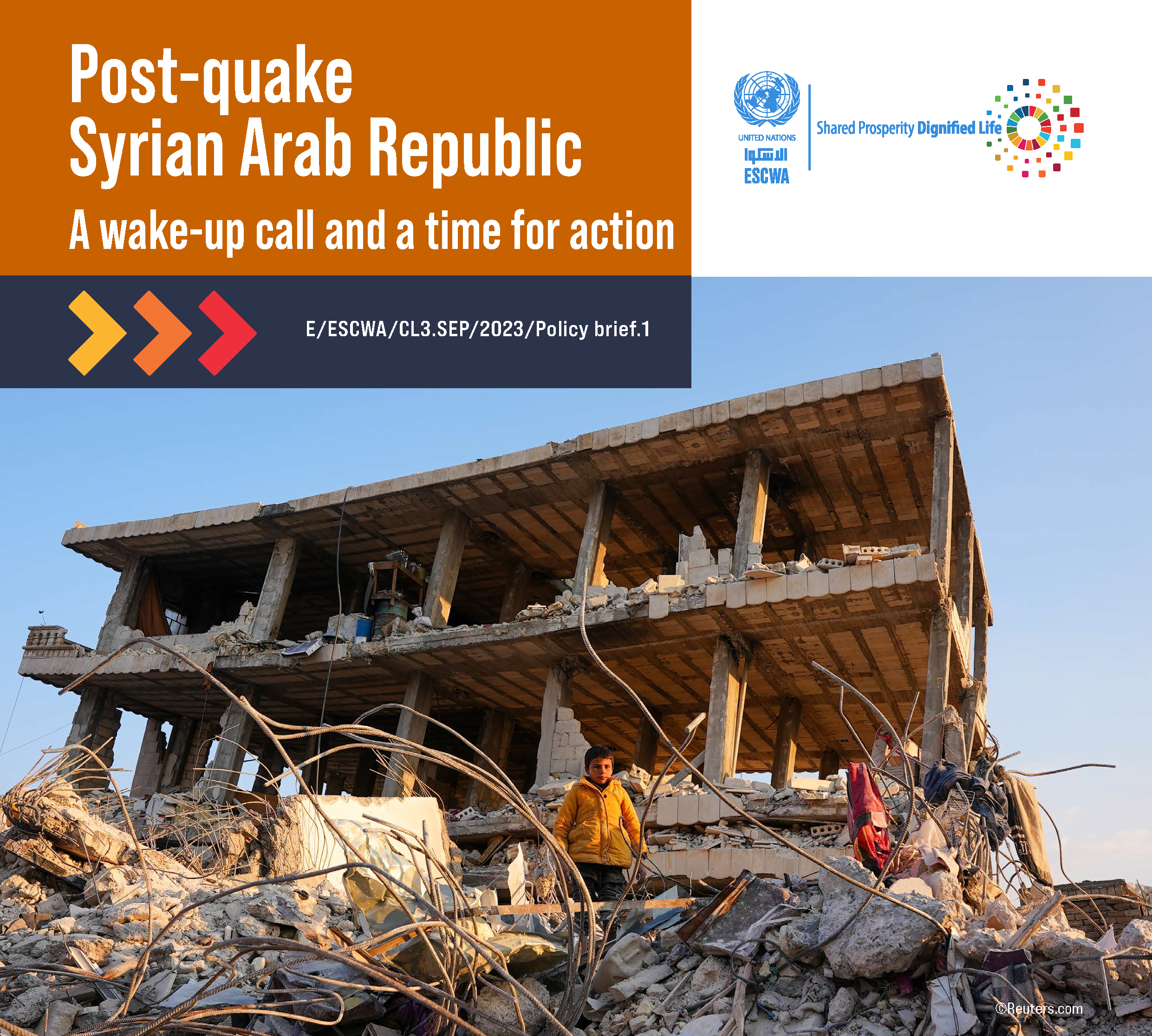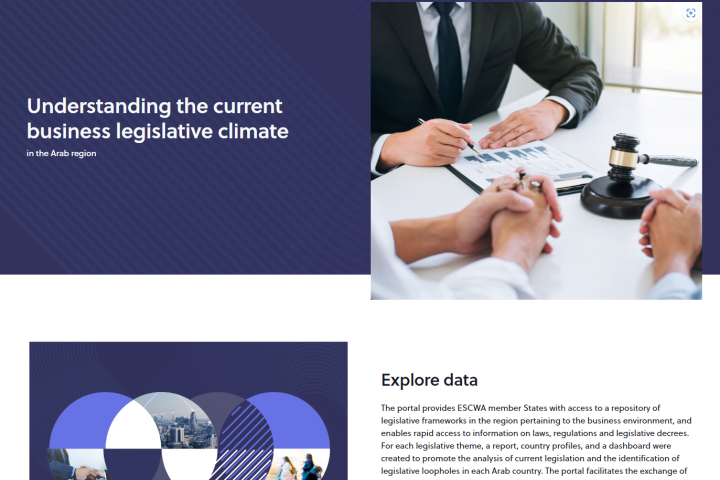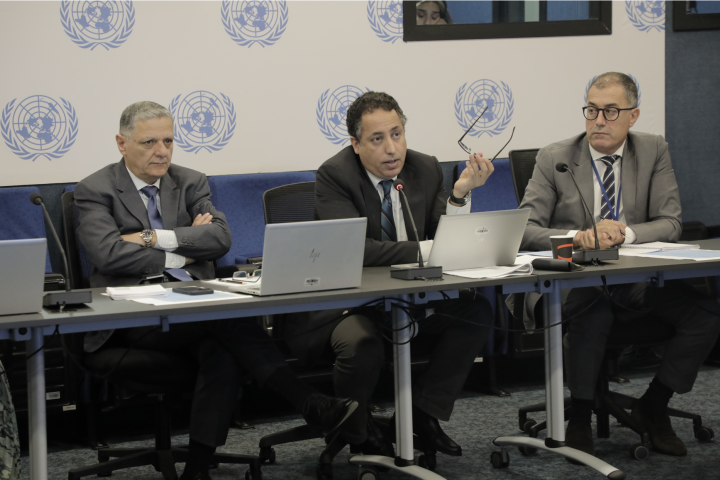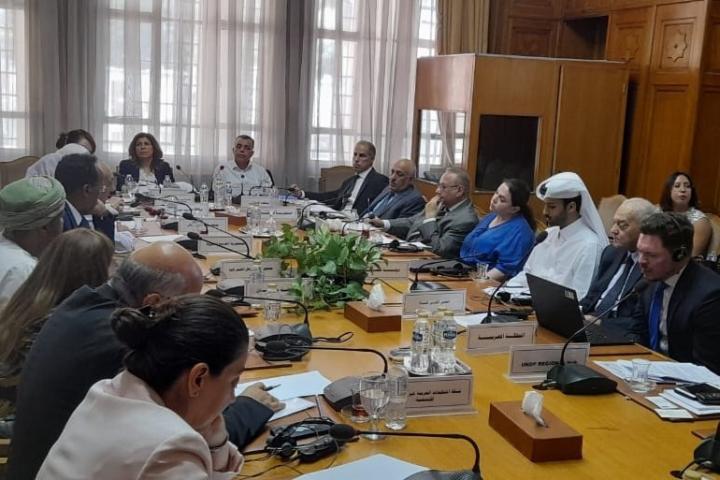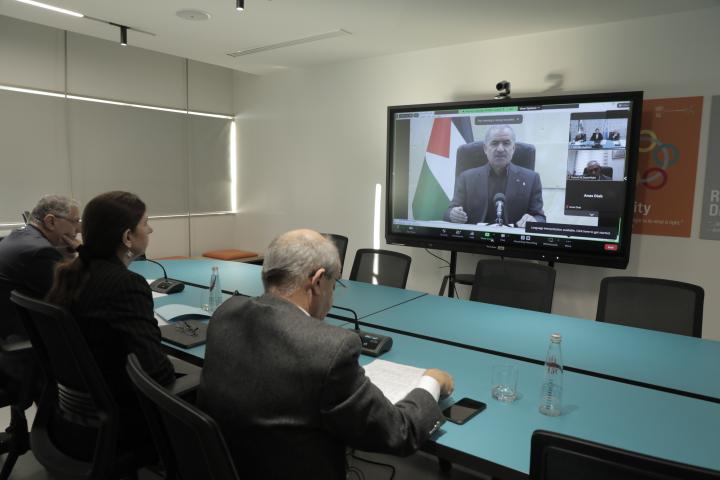Beirut, 21 February 2023--The deadly earthquake that struck southern Türkiye and the north of the Syrian Arab Republic on 6 February continues to have devastating consequences. In Syria alone, the United Nations estimates that up to 9 million persons have been affected, with at least 6000 deaths, and this number is increasing by the day. A new policy brief issued today by the UN Economic and Social Commission for Western Asia (ESCWA) urges for swift and united action to address the protracted crisis.
Residents who survived the earthquake are left in extremely cold temperatures without drinking water, electricity, or fuel for heating, and are exposed to the danger of crumbling buildings as they try to seek shelter. The repercussions are particularly catastrophic in Northwest Syria, where 4.1 million persons depend on humanitarian aid for survival.
“Conflict-affected countries are usually at a significant disadvantage in terms of their preparedness and ability to cope with emerging crises and natural disasters such as earthquakes, and Syria is no exception”, said ESCWA Executive Secretary Rola Dashti. “Unity behind the Syrian people is a must at this crucial and difficult time,” she stressed.
The earthquake will have a disastrous impact on already dire economic and social conditions caused by the ongoing conflict, the COVID-19 pandemic and a series of droughts, among many other factors. Consequently, more and more people will be vulnerable, poor and displaced. Before the earthquake, around 56% of Syrians had already been internally and externally displaced.
“As we all pause, reflect and pay tribute and respect to those who have died or been injured we cannot but think that the longer the conflict continues, all segments of Syrian society will be at their most vulnerable,” Dashti noted. “As time passes, addressing the challenges that Syrians are facing will become harder and costlier in the wake of this most recent horrific tragedy,” she further warned.
Since the disaster occurred, expressions of solidarity across Syrian society – regardless of geographic and political divides – have started to emerge. Other than foreign aid, Syrian remittances have been vital to provide for those affected. Calls for life-saving assistance have been issued. Initiatives should ensure rapid and equal access to humanitarian assistance in a ‘whole of Syria’ approach, regardless of political dilemmas and any hindrance to aid access.
“This tragedy requires transformative, innovative, and long-term solutions to achieve sustainable peace for a prosperous future of Syria. We need to work collectively to strengthen the resilience of the Syrian people with the aim of improving their livelihoods,” Dashti emphasized.
The policy brief promotes an inclusive, equal and coherent approach to relief as a first step towards peacebuilding and the recovery of Syria, and provides recommendations in the interests of all Syrians, including:
- Facilitating access to humanitarian aid to all parts of the country and responding to recent pledges to scale up and speed up support for relief, as well as longer term recovery, while regularly examining progress with the aim of achieving effective early recovery and leading eventually to stability and peace.
- Addressing challenges and barriers to the flow of remittances with the aim of decreasing the cost of transferring money, in line with the Sustainable Development Goals, as it is expected that remittances will surge and be key to the earthquake recovery.
- Focusing on an inclusive and participatory approach to relief and integrating gender into disaster risk management and focusing on vulnerable groups, including children, older persons, and persons with disabilities, who are disproportionately affected by the crises and are more likely to fall into chronic poverty.
- Increasing resilience by prioritizing stabilization efforts and increased community resilience and individual endurable livelihoods in a sustainable way to ensure that long-term recovery is achieved. This would require focusing, shifting and scaling up resources towards initiatives that would support this objective.
***
About ESCWA
One of five United Nations regional commissions, ESCWA supports inclusive and sustainable economic and social development in the Arab States, and works on enhancing regional integration.
For more information:
- Ms. Maryam Sleiman, Public Information Assistant, +961-81-769-888; email: sleiman2@un.org
- Ms. Rania Harb, Public Information Assistant, +961-70-008-879; email: harb1@un.org
